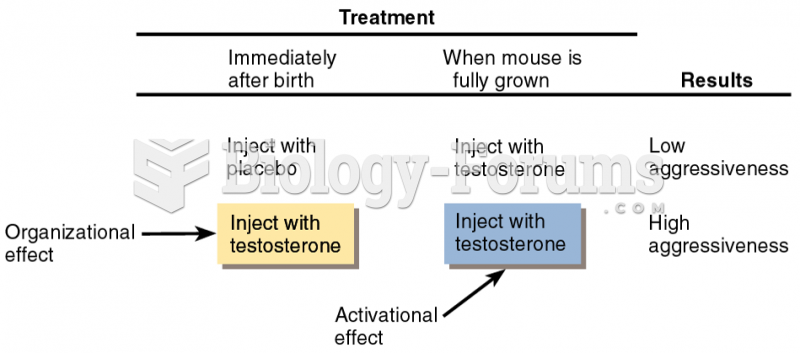|
|
|
The liver is the only organ that has the ability to regenerate itself after certain types of damage. As much as 25% of the liver can be removed, and it will still regenerate back to its original shape and size. However, the liver cannot regenerate after severe damage caused by alcohol.
Drugs are in development that may cure asthma and hay fever once and for all. They target leukotrienes, which are known to cause tightening of the air passages in the lungs and increase mucus productions in nasal passages.
The familiar sounds of your heart are made by the heart's valves as they open and close.
Studies show that systolic blood pressure can be significantly lowered by taking statins. In fact, the higher the patient's baseline blood pressure, the greater the effect of statins on his or her blood pressure.
Not getting enough sleep can greatly weaken the immune system. Lack of sleep makes you more likely to catch a cold, or more difficult to fight off an infection.
 This portrait of Thomas Jefferson is considered an accurate likeness, painted when he was thirty-sev
This portrait of Thomas Jefferson is considered an accurate likeness, painted when he was thirty-sev
 Every society has boundaries that divide what is considered socially acceptable from what is not ...
Every society has boundaries that divide what is considered socially acceptable from what is not ...





